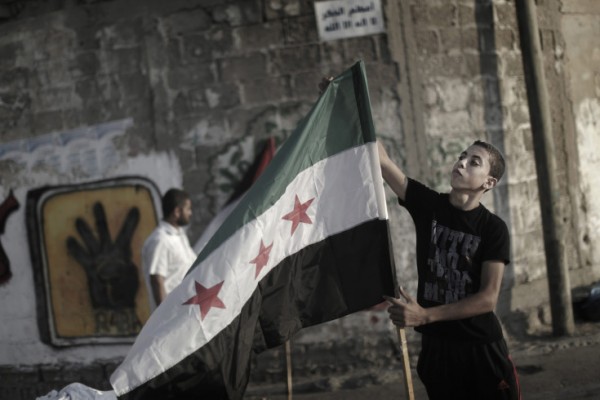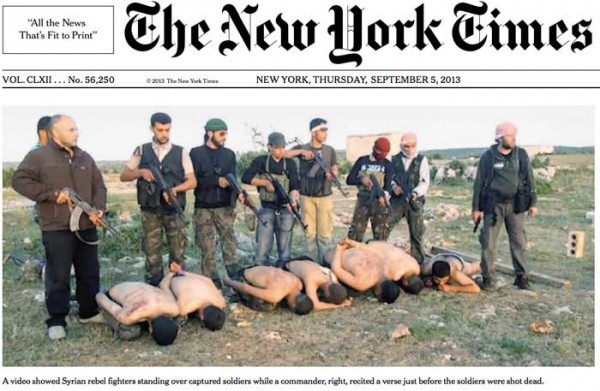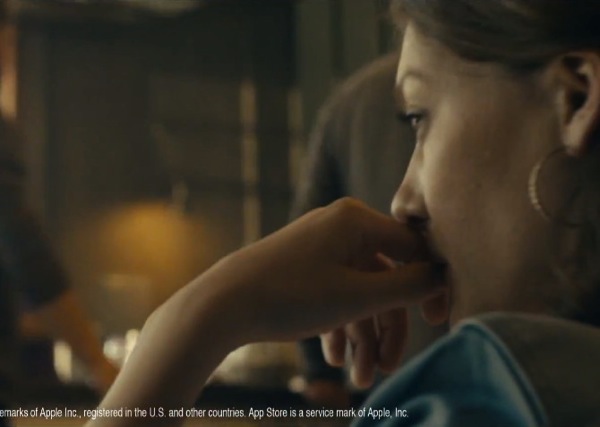Notes
If Your Average US Citizen Could Make Sense of this Photo….
If your average US citizen could make sense of this picture — the 15th photo out of the 79 in Friday’s TIME’s Lightbox “Pictures of the Week” — we’d be having a far more intelligent debate over going to war with Syria.
Move over “Wait, Wait … Don’t Tell Me!” Given the scope of religious and cultural branches, what we really have here is a Middle East 101 Arab and Islamic world political quiz.
First of all, we have the immediate locale. The photo, according to the caption, is set in a Palestinan refugee camp in Gaza. (So is the kid a Syrian refugee, or would that even make sense?) In the foreground, we see the youth holding the green, white and black flag of the Syrian opposition, that in contrast to the red, white and black flag of the Syrian government. In the mid-ground, we can see the outlines of the red, black, white and green Palestinian flag. And, if you’re still following the coup in Egypt (even if Western media dropped the story like a hot bowl of kushari in favor of the Syrian fireworks), you’ll recognize the four finger symbol of pro-Morsi supporters graffitied on the far wall. Known as the “R4bia” (the text is there too), it’s a specific reference to and symbolic reminder of the all-out attack on Muslim Brotherhood protesters a few weeks ago at the Rabaa Al-Adawiya Mosque.
Perhaps the photo earned its place in the slideshow simply for the Syrian (rebel) flag, the setting otherwise inconsequential and the rest of the symbols simply a pretty collage. On the other hand, there’s at least a semester long seminar’s-worth of information drawn upon here on how the Palestinians (starting with what factions actually predominate in the Al-Shaati camp) relate to the various sects and ethnic groups pitted against each other in Syria, and how those elements and ties converge and diverge in Egypt. In other words, the photo operates as an invitation for Westerners to understand how different protest movements relate, how the Arab and Islamic world is not monolithic and how a greater knowledge of the Arab and Islamic world — in an blindly obvious way, really — is critical to all.



Reactions
Comments Powered by Disqus